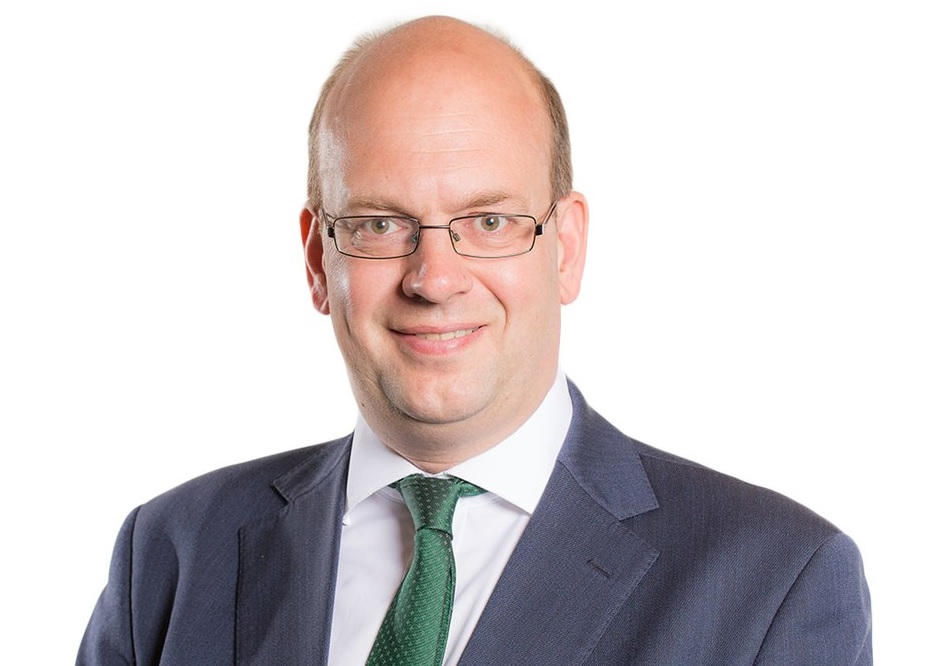Today’s Senedd Roundup: Unionists “pose the greatest threat to the Union”

Owen Donovan, Senedd Home
First Minister’s Questions
Mark Reckless AM (BXP, South Wales East) mentioned a statement on a ministerial visit to Dublin, where the Irish Government “expressed incredulity” that Wales voted Leave in 2016. How would they like it if UK ministers complained about Irish independence? In his mind, we should tell the Irish that if they want to avoid a no-deal, they had to move on “the backstop”.
The First Minister wasn’t particularly impressed and the comments from the Irish Government were typical of what’s said of the UK Government’s approach to Brexit negotiations. The UK-Irish border has serious implications for peace and simply dismissing it didn’t measure up to the seriousness of the situation.
Mark Reckless moved on to the UK Foreign Office withdrawing diplomatic support to the SNP Scottish Government and extended it to the Welsh Government after the SNP promoted independence abroad. Why pal up to a party committed to breaking up the UK?
The First Minister believes Mark Reckless and others needed some self-awareness:
“I want the UK to be a success, and I want Wales to be a successful part of a successful UK. But, when the foreign office acts in that high handed sort of way, then it simply hands a public relations coup to those people who have a different idea of the future. And in the end, it is the unionists who pose the greatest threat to the union, because they will not take these matters seriously and they act in those foolish sorts of provocative ways.”
– First Minister, Mark Drakeford (Lab, Cardiff West)
No need to apologise, Deputy Minister
Adam Price AM (Plaid, Carms. E. & Dinefwr) picked up on Lee Waters’ recent much-publicised comments on the economy and his subsequent apology – which Adam Price believed he didn’t need to make.
“I think he is absolutely right that conventional (economic) thinking has failed… But the second part of his statement is simply a statement of fact that you’ve achieved static GDP, in relative terms, over 20 years. The Government, in which you were a senior adviser, set a target of achieving 90% of UK GVA per head. In fact, we’re now in the low 70s, exactly where we were, as Lee Waters says, 20 years ago.”
– Adam Price AM
Naturally, the First Minister didn’t agree with his junior minister. Wales currently has the highest levels of employment and the lowest levels of economic inactivity we’ve ever had. Also, when discussing the economy, Plaid aren’t very eager to point out that Ieuan Wyn Jones ran the economy brief for four years.
Adam Price was, nonetheless, pleased Ieuan Wyn Jones got a mention as his economic strategy at the time emphasised supporting indigenous businesses and replacing grants with loans – policies which were largely ignored. With the Wales Governance Centre publishing today that Wales’ fiscal gap is £13.7billion, was it Welsh Government policy to close this?
The First Minister said it ought to be the ambition of any government to close the gap, but economic underperformance within the UK was a case for remaining part of the UK instead of trying to explain how to close that gap should Wales become independent.
Backpedalling on Withybush maternity services?
Leader of the Opposition, Paul Davies AM (Con, Preseli Pembs.) told the chamber it was a “disgrace” that maternity services at Withybush Hospital in Haverfordwest will be reduced to on-call, out-of-hours service despite promises there would be no changes as recently as March.
“This is just symptomatic of your government’s approach….to our NHS? You tell us one thing in this Chamber but what you actually do is completely different. So far in our exchanges, we’ve spoken about Betsi Cadwaladr being in special measures for more than four years, and Cwm Taf entering special measures, and now we see….Swansea Bay University Health Board in the news.”
– Leader of the Opposition, Paul Davies AM
The First Minister believes he “couldn’t have it both ways”; you can’t ask questions about the detailed management of a single hospital then complain about government micromanagement. Ultimately, these decisions are taken by health boards.
More work needed to educate 16 & 17-year-olds before they can vote in Senedd elections
Constitutional Affairs Committee
Stage 1 Report: Senedd & Elections Bill (pdf)
Published: 28th June 2019
- The Senedd should back the general principles of the Bill, but there were concerns over timings and the lack of a draft version
The key recommendation from the Committee is that the Senedd should back the general principles of the law when it goes before them for debate on July 10th. There were, however, questions as to whether the Bill was both too limited, as well as too wide-ranging.
As the Bill requires a supermajority (two-thirds of AMs to vote in favour) to pass, more extensive reforms – such as increasing the size of the Senedd – were dealt with separately (and ultimately dropped).
Despite close working between the Assembly Commission and Welsh Government, the Welsh Government maintains its own plans to introduce legislation to reduce the voting age to 16 for council elections; any future law there could result in technical changes being made to this Bill within months of it passing.
There was criticism that the Bill wasn’t introduced as a draft first of all, but there was a seeming determination on the part of the Assembly Commission to ensure 16 and 17-year-olds are able to vote in 2021. However, the Electoral Commission said they needed around six months of preparation before the electoral canvass in 2020, meaning the Bill really needs to pass by the end of 2019.
Nonetheless, the Committee recommended any future constitutional laws be introduced in a draft form first.
- The Committee has no preference on a name change and it should be left to AMs
One of the headline proposals in the Bill is to change the official name of the National Assembly to “Senedd” with “Welsh Parliament” used unofficially. The monolingual name “Senedd” had more support amongst AMs as a whole and as the Bill requires a supermajority, the Llywydd decided it was the right approach.
The Welsh Government, however, believed the wording of the Bill may add to confusion by referring to the Assembly, Senedd and Welsh Parliament; they propose amending it so it’s unambiguously “Senedd” and removing all references to an “Assembly” in the Government of Wales Act 2006 – though there were questions over whether they had the power to do this.
The Committee didn’t have a view on what name should be used and believed it should be left to the Senedd as a whole to decide.
- Lowering the voting age to 16 “might increase turnout in future elections”
Prof. Roger Awan-Scully told the Committee that there was evidence that when people don’t vote in the first election they’re eligible to vote in, they’re less likely to vote in future elections. Also, the Electoral Reform Society said evidence from Scottish local elections was that turnout amongst 16-17-year-olds was higher than 18-24-year-olds – which possibly bodes well for future turnouts.
The Welsh Government also plans to amend the Bill to extend voting rights to foreign nationals resident in Wales – though there were no firm plans yet to change eligibility for prisoners.
The Committee concluded that the Assembly Commission and Welsh Government weren’t clear on how they intend to educate 16-17-year-olds ahead of the 2021 Welsh General Election. They were “surprised” work on this didn’t start around the time the Bill was introduced (a stakeholder group has since been established) and called for a number of written commitments and timetables from the Commission and Education Minister.

Wales set to miss 2030 target to eliminate Hepatitis C
Health Committee
Hepatitis C: Progress towards achieving elimination in Wales (pdf)
Published: 27th June 2019
“We agree with witnesses that the elimination of Hepatitis C is achievable, but only with a commitment from the Welsh Government to produce a clear elimination strategy without delay….However, it is disappointing that we are not currently on track to meet the 2030 elimination target, and it is very concerning to hear about the uncertainty post 2020/21 in terms of strategy and funding, particularly for dedicated posts.”
– Committee Chair, Dr Dai Lloyd AM (Plaid, South Wales West)
- Hepatitis C disproportionately affects vulnerable groups
Hepatitis C is a blood-borne virus affecting the liver, which can eventually lead to cirrhosis and liver cancer. Almost all cases are spread through drug users sharing needles, but it can also also be transmitted through poorly sterilised piercings – however, sex isn’t one of the main ways to transmit it. While there’s no vaccine, it can be successfully treated in 90% of cases if caught early.
Around 12-14,000 people in Wales have chronic hepatitis C. Due to how it’s caught, it’s far more prevalent amongst poorer communities, with more than half of people going to hospital with the disease coming from the most disadvantaged 20% in society (including the homeless), while the report says more than half of injecting drug users in Wales have antibodies which show they’ve come into contact with the virus.
Low levels of awareness amongst some health professionals was raised as an ongoing issue. Some patients said they had been visiting their GPs for several years with hepatitis C symptoms, but were never offered a test. There’s also a stigma attached to the virus due to how it’s transmitted.
- Hepatitis C can be eliminated, but targets are set to be missed in Wales
The World Health Organisation (WHO) has set a target for Hepatitis B and C to no longer be a serious public health threat by 2030, which in practical terms means a 90% reduction in incidence and 65% reduction in deaths caused by the viruses. Wales signed up to this.
Public Health Wales said they were “optimistic” the target could be reached, but many witnesses said health boards were failing to meet treatment targets. Anecdotal evidence was also provided where health boards have told clinicians to avoid exceeding the treatment target due to finances.
The Welsh Government issued a new notice in October 2017 requesting that a number of measures are put in place by health boards, but no targets, specific delivery plan or additional funding accompanied it.
- The long-term future of treatment programmes has been brought into question
Many witnesses said it was important to be able to go out into communities and actively track down people who are at risk, but drug users were said to be “notoriously poor” at seeking out health and social care services. Suggestions were made that more frequent testing can be undertaken in places like pharmacies, prisons, homeless shelters and mosques (Pakistan has a high hepatitis C infection rate).
The cost of hepatitis C treatments has significantly reduced, but there were calls for the Welsh Government to put funding on a longer-term footing; some national leadership roles for hepatitis don’t have funding certainty beyond 2020.
Support our Nation today
For the price of a cup of coffee a month you can help us create an independent, not-for-profit, national news service for the people of Wales, by the people of Wales.




